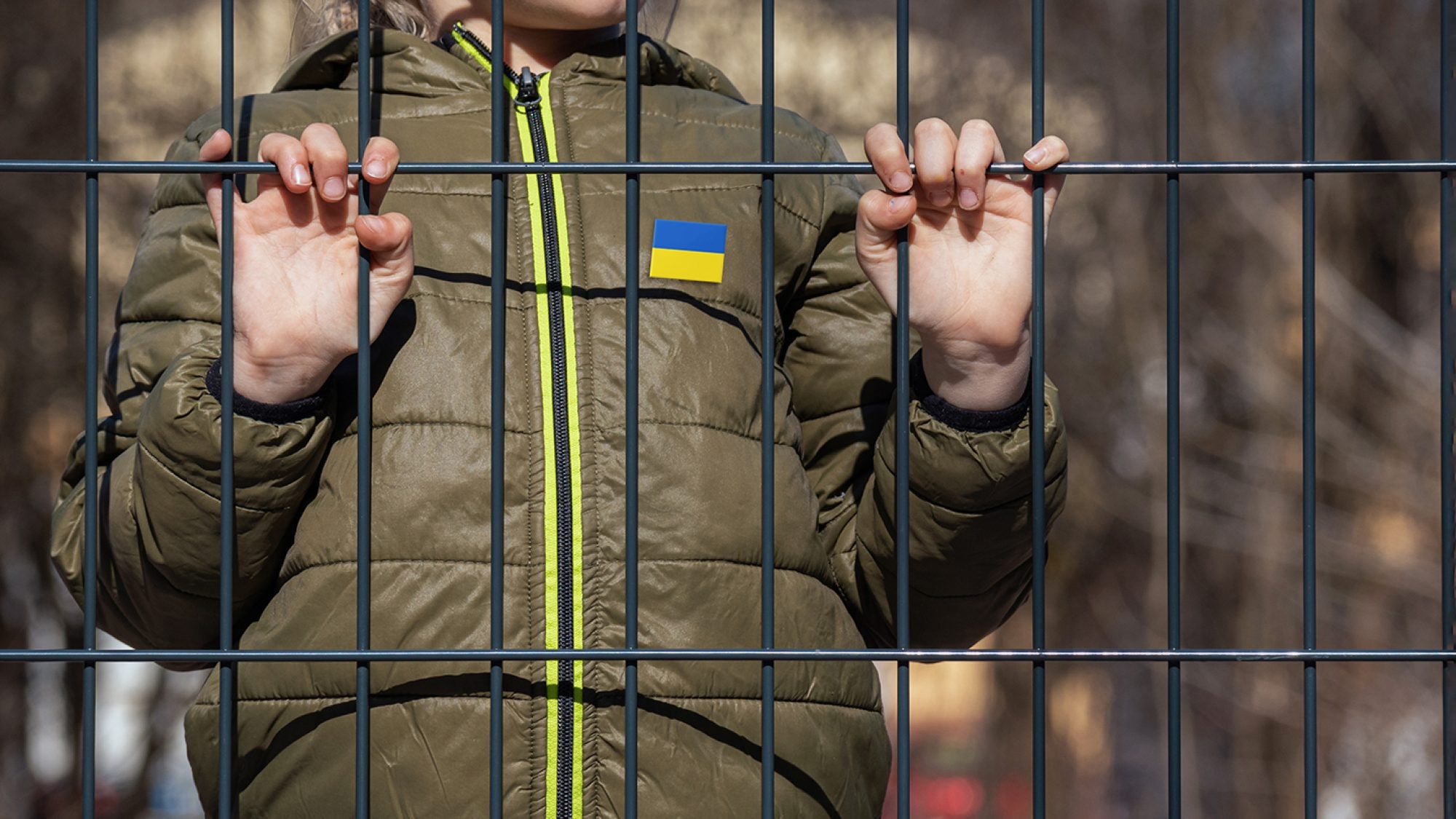The Forcible Transfer and Deportation of Ukrainian Children by Russia: Search for Solutions
Thousands of children affected by the war in Ukraine have been separated from their families, communities, and country and forcibly transferred to Russian-occupied territories or deported to Russia. Some have been placed in Russian foster and adoptive families and given Russian nationality. Other reports indicate that children from Ukraine are being transferred to camps and facilities in Russia and Russia-occupied territories, where Russian officials have said they are integrated and receive patriotic education. The UN Office of the High Commissioner for Human Rights has underlined that international humanitarian law prohibits forced transfers and deportation of protected persons, which may constitute war crimes.
During this webinar, participants will examine the current situation, provide historical context, and discuss the response. Ukrainian organizations engaged in the frontline response will share their perspectives, and participants will consider how the international community can support family tracing and reunification.
This event is sponsored by Georgetown University’s Collaborative on Global Children’s Issues in coordination with the Georgetown Institute for Women, Peace, and Security, Razom for Ukraine, the U.S.-Ukraine Foundation, and Where Are Our People?.
Ukrainian interpretation will be available. Please email globalchildren@georgetown.edu by Monday, July 10 with additional accommodation requests.
Participants
Matthew Dorr is the Ukraine desk officer with the Office of Eastern European Affairs at the U.S. Department of State. Dorr joined the State Department in 2013 as a political officer. Prior to this assignment, which he assumed in August 2021, Dorr served overseas at U.S. embassies in El Salvador, Colombia, Egypt, and the United Kingdom.
Vladyslav Havrylov is a historian and religious scholar based in Kyiv. His research interests include the history of mass deportations in the Soviet era and the policy of the Catholic Church during World War II. He graduated from seminary in 2014 and is currently pursuing doctoral work in history and religious studies. In 2022, Havrylov participated in a virtual research scholar program at the Jack, Joseph, and Morton Mandel Center for Advanced Holocaust Studies at the United States Holocaust Memorial Museum. He is a researcher with Where Are Our People?
Daria Herasymchuk is the president’s commissioner for children’s rights and rehabilitation in the administration of Ukrainian President Volodymyr Zelensky. Since the beginning of the full-scale invasion of Ukraine in February 2022, Herasymchuk has helped to lead the National Coordinating Board for the Protection of Children’s Rights under Martial Law. Since August 2022, she has served as the secretary of the Coordination Council for the Protection and Safety of Children created by Zelensky.
Gillian Huebner (moderator) is the executive director of the Collaborative on Global Children’s Issues at Georgetown University. A global child rights and protection specialist, Huebner has supported programs and systems to enhance community-based and nationally-owned approaches to building young people’s resilience and supporting children at risk through her work with the UN, the U.S. government, private foundations, multiple non-governmental organizations, and as an independent consultant.
Mykola Kuleba is a Ukrainian public and political figure, founder and CEO of Save Ukraine, and president of Children’s Rescue Service. Kuleba previously served as the commissioner for children’s rights and head of children’s services in Kyiv, Ukraine.
Anastasiia Marushevska is the founder of Where Are Our People? and chief editor at Ukraїner International. Marushevska is a communications strategist, writer, and speaker with a focus on promoting Ukrainian context globally.
Nadia McConnell is the co-founder and president of the U.S.-Ukraine Foundation. Born in Austria to two Ukrainian refugees fleeing the Red Army, McConnell immigrated to the United States with her parents in 1950. She has previously served as director of congressional relations at the Federal Emergency Management Administration and as deputy assistant administrator of NASA for congressional affairs in the Reagan administration.
Katya Pavlevych (moderator) is an advocate working on the topic of the illegal deportation of Ukrainians by Russia. Since October 2022, Katya has supported the Where Are Our People? initiative and is a policy advisor on child deportation issues with Razom for Ukraine. Pavlevych holds a master’s degree from the Institute of International Relations at Kyiv National Taras Shevchenko University.
Kateryna Rashevska is a legal expert at the Regional Center for Human Rights and a Ph.D. fellow in the Institute of International Relations at Taras Shevchenko National University. She authored the submission of the Regional Center for Human Rights and the Lemkin Institute for Genocide Prevention to the International Criminal Court on crimes committed against Ukrainian children by Maria Lvova-Belova and Vladimir Putin. She has also contributed to the draft UN General Assembly resolution on the repatriation of illegally deported children.
Erin Farrell Rosenberg is a visiting scholar with the Urban Morgan Institute for Human Rights at the University of Cincinnati College of Law. She is also an attorney specializing in international criminal law, reparations, and genocide prevention. Rosenberg has worked with the International Criminal Tribunal and International Criminal Court and served as a senior advisor at the Center for the Prevention of Genocide at the U.S. Holocaust Memorial Museum.
Steven Schrage is the executive director of the U.S. Helsinki Commission. He previously served as co-chair of the G8’s Crime and Terrorism Group and U.S. deputy assistant secretary of state. He also served in the executive branch as a senior advisor in the Office of the U.S. Trade Representative, as well as the foreign policy director and in other policy roles for major presidential campaigns. Schrage has considerable U.S. congressional experience as a Senate chief of staff, international trade counsel for the Ways and Means Committee, and on the policy team of the speaker of the House of Representatives.
Bogdana Yakovenko is an executive board member with Helping to Leave, where she co-leads the department of aid for the deported. Yakovenko and her team have helped to develop a secure evacuation system, facilitating the safe relocation of Ukrainians from the Russian Federation to other countries. She is a passionate advocate for the rights of deported Ukrainians, particularly children.
